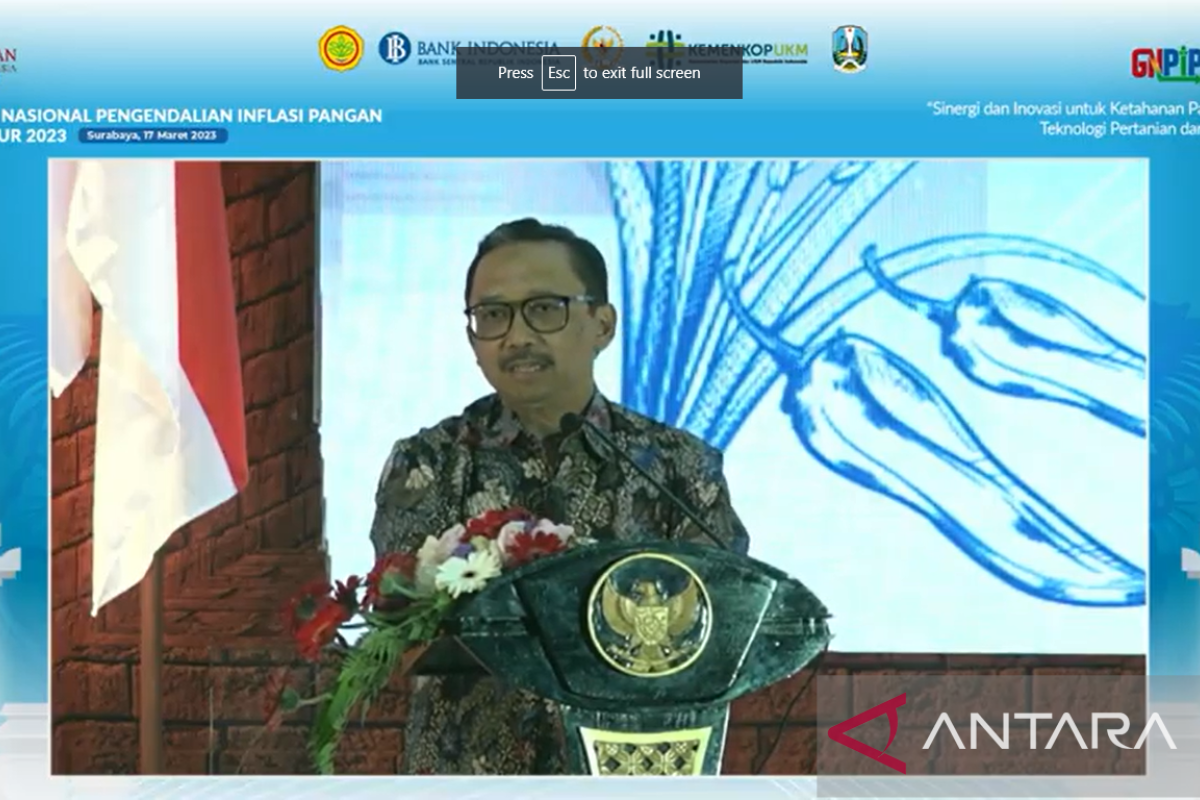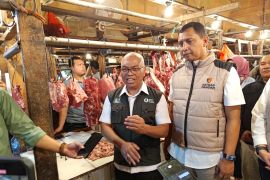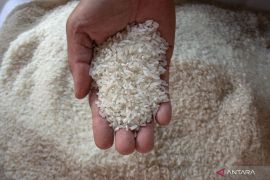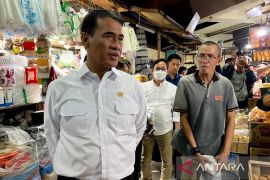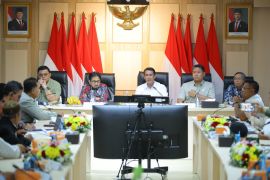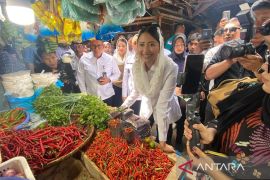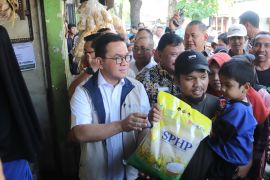"The food inflation challenge this year is still quite large, We may already know that there will be a risk of bad weather due to El Nino," he stated during the 2023 East Java Food Inflation Control National Movement (GNPIP) streamed virtually on Friday.
He said that El Nino is a prolonged dry season that should be handled through preemptive actions, such as good irrigation management and choosing and planting crop varieties that can adapt more to the dry conditions.
"We should prepare for this early if we want to maintain stability in food prices," he said.
Moreover, to strengthen the steps in handling food inflation in the future, especially that arising from food prices, there are seven primary programs in 2023 GNPIP that serve as a reference point.
These primary programs include optimizing ministry/institution and regional government budget for market operation as a strategy to control food prices to maintain people's purchasing power.
They also involve strengthening the security of horticulture and other strategic food supply, specifically for chili and shallots, which have currently become the source of inflation in several regions.
The use of farming tools, machines, and facilities is also increased to boost farmers' productivity and increase the added value of their products.
The others include the expansion of cooperation between regions, support for freight cost subsidy, information and communication technology infrastructure strengthening, including regional food balance and coordination strengthening to maintain inflation expectations.
Food data and information digitalization, as well as digitalization in agriculture, continues to be pushed through schemes, such as urban farming, digital farming, and other agriculture innovations.
"Synergy between stakeholders is certainly very important in controlling inflation and confronting challenges together this year," Agung remarked.
These programs are formulated by referring to the 2022-2024 inflation control road map and 2023 GNPIP inflation control strategy.
They prioritize structural, forward-looking, and digital-based efforts to stabilize prices to support the acceleration of national economic recovery.
Related news: Government probes cause behind rice price hike despite harvest period
Related news: Ministry to spend state budget-sourced US$544.17 million for food aid
Translator: Martha H S, Fadhli Ruhman
Editor: Anton Santoso
Copyright © ANTARA 2023
